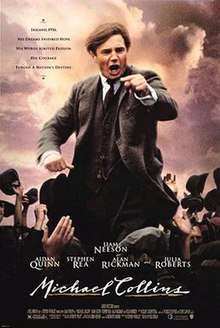
The Irish Republican Army was an Irish republican revolutionary paramilitary organisation. The ancestor of many groups also known as the Irish Republican Army, and distinguished from them as the "Old IRA", it was descended from the Irish Volunteers, an organisation established on 25 November 1913 that staged the Easter Rising in April 1916. In 1919, the Irish Republic that had been proclaimed during the Easter Rising was formally established by an elected assembly, and the Irish Volunteers were recognised by Dáil Éireann as its legitimate army. Thereafter, the IRA waged a guerrilla campaign against the British occupation of Ireland in the 1919–1921 Irish War of Independence.

The Irish Civil War was a conflict that followed the Irish War of Independence and accompanied the establishment of the Irish Free State, an entity independent from the United Kingdom but within the British Empire.

Éamon de Valera was an Irish statesman and political leader. He served several terms as head of government and head of state and had a leading role in introducing the 1937 Constitution of Ireland.

William Thomas Cosgrave was an Irish Fine Gael politician who served as the president of the Executive Council of the Irish Free State from 1922 to 1932, leader of the Opposition in both the Free State and Ireland from 1932 to 1944, leader of Fine Gael from 1934 to 1944, founder and leader of Fine Gael's predecessor, Cumann na nGaedheal, from 1923 to 1933, chairman of the Provisional Government from August 1922 to December 1922, the president of Dáil Éireann from September 1922 to December 1922, the minister for Finance from 1922 to 1923 and minister for Local Government from 1919 to 1922. He served as a Teachta Dála (TD) from 1921 to 1944. He was a Member of Parliament (MP) for the Kilkenny North constituency from 1918 to 1922.

William John Neeson is an actor from Northern Ireland. He has received several accolades, including nominations for an Academy Award, a BAFTA Award, three Golden Globe Awards, and two Tony Awards. In 2020, he was placed seventh on The Irish Times list of Ireland's 50 Greatest Film Actors. Neeson was appointed Officer of the Order of the British Empire (OBE) in 2000.
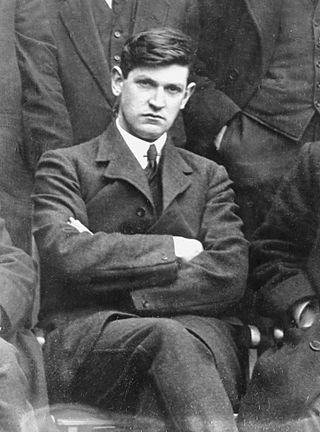
Michael Collins was an Irish revolutionary, soldier and politician who was a leading figure in the early-20th century struggle for Irish independence. During the War of Independence he was Director of Intelligence of the Irish Republican Army (IRA) and a government minister of the self-declared Irish Republic. He was then Chairman of the Provisional Government of the Irish Free State from January 1922 and commander-in-chief of the National Army from July until his death in an ambush in August 1922, during the Civil War.
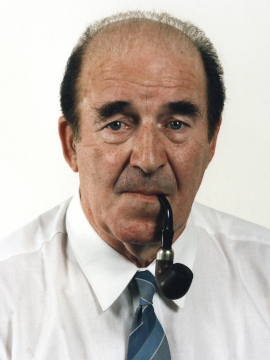
Neil Terence Columba Blaney was an Irish politician. He was first elected to Dáil Éireann in 1948 as a Fianna Fáil Teachta Dála (TD) representing Donegal East. A high-profile member of the party, Blaney served as a government minister several times; he was Minister for Posts and Telegraphs (1957), Minister for Local Government (1957–1966) and Minister for Agriculture and Fisheries (1966–1970). In 1970 Blaney's career was radically altered when, alongside Charles Haughey, he was involved in the Arms Crisis and stood accused of clandestinely arranging to provide weapons to the newly-emergent Provisional Irish Republican Army. Although later acquitted of wrongdoing in an Irish court, Blaney involvement in the crisis saw him stripped of his ministries and eventually forced his expulsion from Fianna Fáil. A dogged political campaigner, Blaney managed to retain his seat in Donegal and remained a TD for another two decades, running under the banner of "Independent Fianna Fáil". In addition to being a TD, Blaney also entered into European politics, becoming a member of the European Parliament in 1979. Blaney was a holder of both offices when he died in 1995. Entering the Dáil as its youngest member, he left it as the oldest member.

Gerald Boland was an Irish Fianna Fáil politician who served as Minister for Justice from 1939 to 1948 and 1951 to 1954, Minister for Lands from 1936 to 1939, Minister for Posts and Telegraphs from 1933 to 1936 and Government Chief Whip from 1932 to 1933. He served as a Senator from 1961 to 1969 and a Teachta Dála (TD) for the Roscommon constituency from 1923 to 1961.
Events from the year 1922 in Ireland.

Harry Boland was an Irish republican politician who served as President of the Irish Republican Brotherhood from 1919 to 1920. He served as a Teachta Dála (TD) from 1918 to 1922.

The Battle of Dublin was a week of street battles in Dublin from 28 June to 5 July 1922 that marked the beginning of the Irish Civil War. Six months after the Anglo-Irish Treaty ended the recent Irish War of Independence, it was fought between the forces of the new Provisional Government and a section of the Irish Republican Army (IRA) that opposed the Treaty.
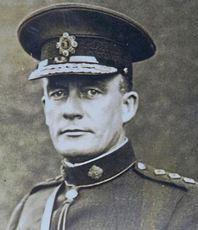
Eamon "Ned" Broy was successively a member of the Dublin Metropolitan Police, the Irish Republican Army, the National Army, and the Garda Síochána of the Irish Free State. He served as Commissioner of the Gardaí from February 1933 to June 1938. He later served as president of the Olympic Council of Ireland for fifteen years.
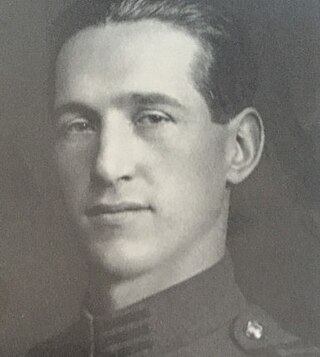
David Neligan, known by his soubriquet "The Spy in the Castle", was a crucial figure involved in the Irish War of Independence (1919–21) and subsequently became Director of Intelligence for the Irish Army after the Irish Civil War (1922–23).
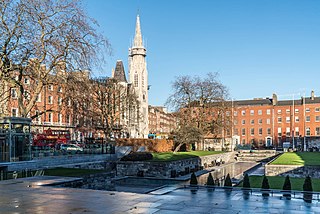
Parnell Square is a Georgian square sited at the northern end of O'Connell Street in the city of Dublin, Ireland. It is in the city's D01 postal district.
Detective Sergeant Denis O'Brien, sometimes called "Dinny O’Brien", was a veteran of the Irish War of Independence and the Irish Civil War. He joined the Garda Síochána in 1933 and was killed by the Anti-Treaty IRA in 1942.
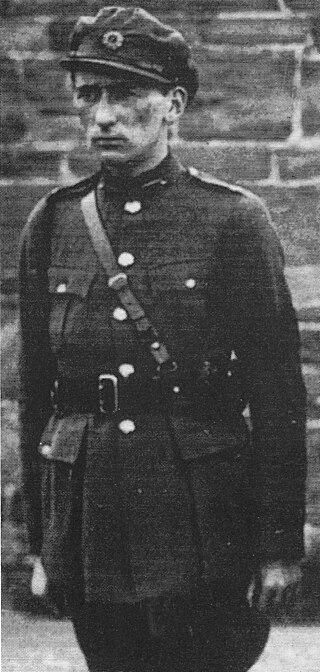
Liam Tobin was an officer in the Irish Army and the instigator of an Irish Army Mutiny in March 1924. During the Irish War of Independence, he served as an IRA intelligence officer for Michael Collins' Squad.
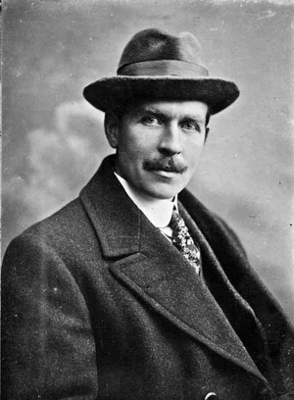
Jeremiah Christopher Lynch was an Irish revolutionary from County Cork who was a member of the Irish Republican Brotherhood and became a Sinn Féin TD in the First Dáil. A skilled organiser, he was prominent in Irish American organisations in the United States, where he spent many years.
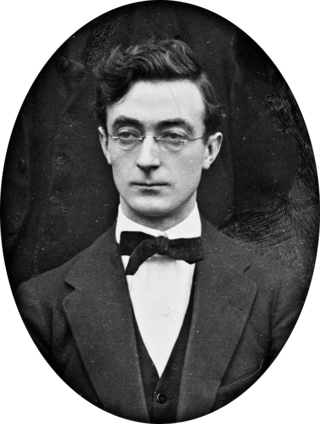
Seán McGarry was a 20th-century Irish nationalist and politician. A longtime senior member of the Irish Republican Brotherhood (IRB), he served as its president from May 1917 until May 1918 when he was one of a number of nationalist leaders arrested for his alleged involvement in the so-called German Plot.

Patrick Moylett (1878–1973) was a 20th-century Irish nationalist who, during the initial armistice negotiations to end the Anglo-Irish war, briefly served as president of the Irish Republican Brotherhood during late-1920. A successful businessman in County Mayo and County Galway, he was a close associate of Arthur Griffith and frequently travelled to London acting as a middleman between Sinn Féin and officials in the British government. He ran a business that was used as a front to import armaments for the cause and held that many of those that became closest associates of Éamon de Valera during the civil war rift had at one time worked for the British. Particularly that Erskine Childers despite his involvement with the Asgard and his close association with Éamon de Valera had been in the direct pay of the Admiralty Naval Intelligence Service up till 1916 before becoming secretary to the Éamon de Valera led treaty discussions.
Joseph John O'Connor was an Irish republican, soldier and politician.
